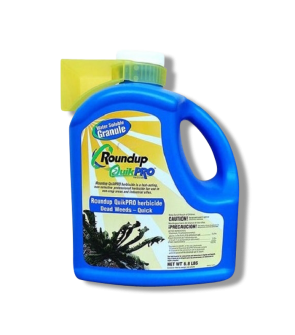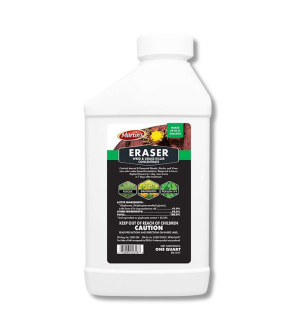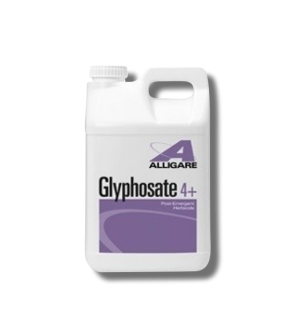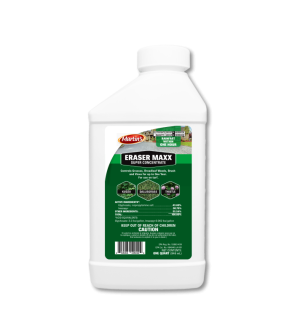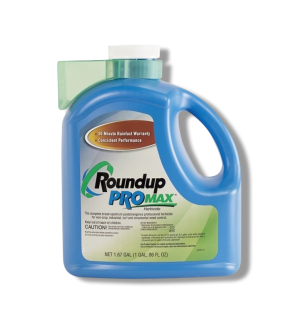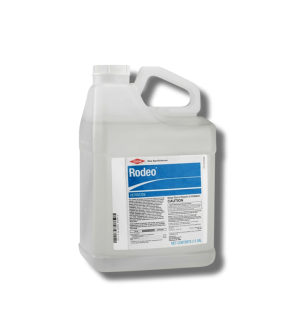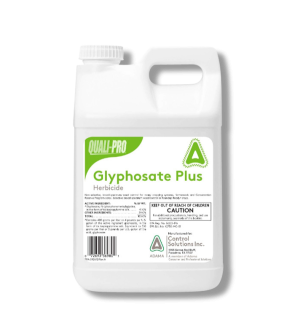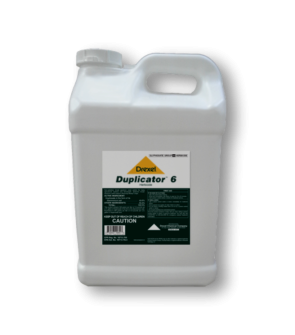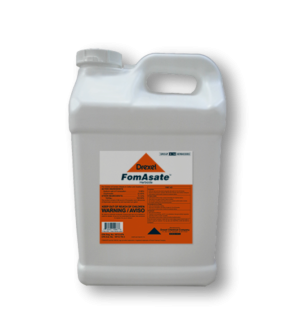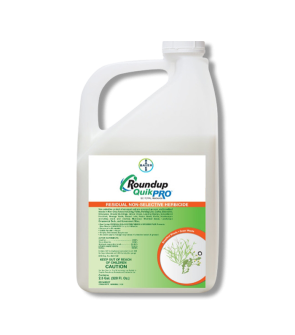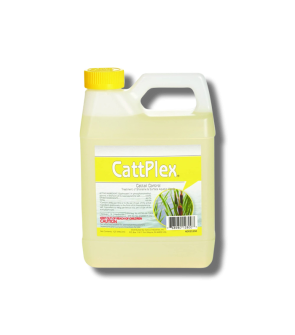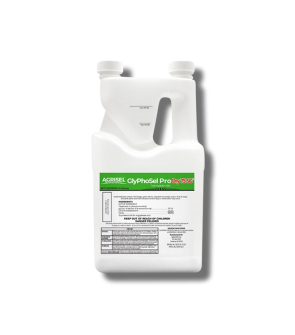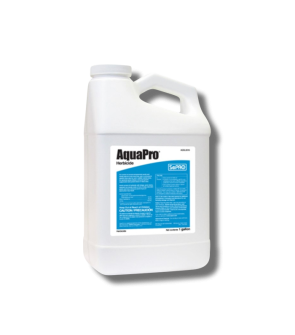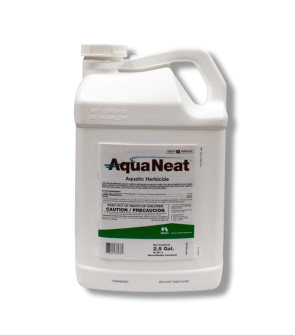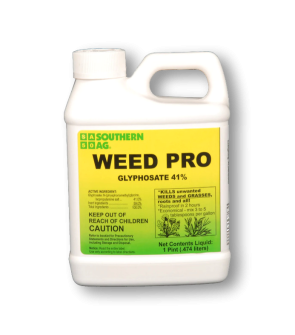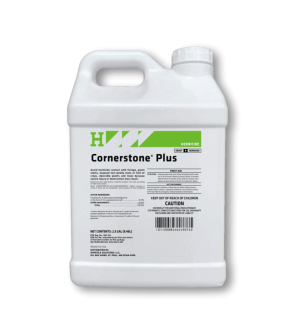Gain access to personalized product screening, the best pricing, rewards, and more!
Most Effective Products
Glyphosate
When it comes to effective weed control, one of the world’s best and most widely used chemicals to get the job done is Glyphosate. Glyphosate is a non-selective chemical herbicide which for several years now is has been a primary chemical for a landscaper or farmer looking to get rid of problematic weeds that are interfering with landscaping and with agriculture. For homeowners, Glyphosate is an excellent chemical to have in your arsenal against invasive weeds that appear to be taking your lawn and making it unsightly.
Here at Solutions Pest & Lawn, we carry various effective professional-grade glyphosate-based herbicides that are popular in the lawn care industry. Shop our recommended Glyphosate products exclusively on this page and read on to learn more background info on the active ingredient.
What is Glyphosate?
Glyphosate is a broad-spectrum systemic herbicide that can effectively kill the most stubborn of weeds, especially difficult to control perennial plants. At this moment, it is currently the most heavily purchased and used herbicide in the United States, averaging about 5 to 8 million pounds being utilized every year on residential and commercial lawns and yards and 85 to 90 million pounds used for agricultural purposes.
Glyphosate is used to kill weeds in and around fences, trees, driveways, flower beds, walkways, shrubs, and weedy lawns to prepare for renovations and garden preparations. The product is known as a non-selective herbicide meaning that it doesn’t discriminate against what it touches. With this being the case, when using Glyphosate one must be careful not to spray your valuable and desirable plants.
Glyphosate was first developed by the company Monsanto under their trademarked name for the chemical, Roundup. However since the patent held by Monsanto expired in 2003, various companies and manufacturers have produced generic brands of RoundUp.
How Does Glyphosate Work?
Mode of Action
Glyphosate is a systemic herbicide meaning that once it is sprayed it is absorbed into the leaves and travels throughout the plant system. When Glyphosate is sprayed onto a plant it interferes with the plant's ability to make crucial proteins necessary for the growth of the plant.
Glyphosate restrains certain amino acids essential for protein development in plants. It is shaped as an isopropylamine salt. Glyphosate came into prominence due to its low toxicity and because the chemical is able to break down quickly in the soil where it will not continue to do damage. In any case, glyphosate can develop in plant tissues, prompting damage and killing of plants, which can be a problem for trees and shrubs that are not meant to be targeted by the chemical. In annual weeds, death of the plant occurs quickly, between two to four days while perennial invasive weeds take about 7 to 10 days for total elimination.
Benefits of Glyphosate
Glyphosate is an excellent tool for weed control because it will definitely kill whatever target weed is growing that you don't want around.
Use Glyphosate when you are dealing with a stubborn weed that is hard to control with other herbicide types.
Drawbacks of Glyphosate
Glyphosate is non-selective meaning it will kill all vegetation that it comes into contact with. Do not use Glyphosate in cases where you have weeds that are in close quarters with desired plants.
Is Glyphosate Safe?
According to the EPA, Glyphosate is considered safe to use because of its low toxicity. However, there can be irritation caused due to the chemical getting on the skin or in the eyes. Please apply according to label directions.
Never handle Glyphosate, or any chemical herbicide or pesticide, without the use of protective safety equipment. At a minimum, gloves should be used when Glyphosate is handled as well as protective eyewear and a protective safety mask.
What To Expect

When using a Glyphosate-based product, you can expect treated plants to die after a few weeks. Allow between 4 to 20 days for the product to work through the plant to deteriorate it. Glyphosate works best when the temperature is above 60 degrees and there is no rainfall or watering of the treated plant for at least two days after application.
When applying Glyphosate, refer to the label for proper mixing and application rates. Spray target weeds until the leaves are wet but not dripping. Do not walk on the applied areas as this can cause glyphosate to track around and damage grasses and other non-targeted vegetation.
Featured Products
Glyphosate 4 Plus Weed Killer Concentrate - an industrial weed killer for control of tough vegetation. It is a systemic herbicide that kills the weeds to the root. This product is a contact killer and once it touches the soil it is no longer active meaning new plants can be planted immediately.
Eraser Herbicide - Martin's Eraser 41% Glyphosate (Roundup Pro generic) is manufactured by Control Solutions and is a systemic post-emergent herbicide that delivers broad-spectrum control of a large range of weeds. This product is meant to be used as a spot treatment application for invasive species of weeds in your home or property. But can also be used in preparation for lawn renovation and garden planting.







